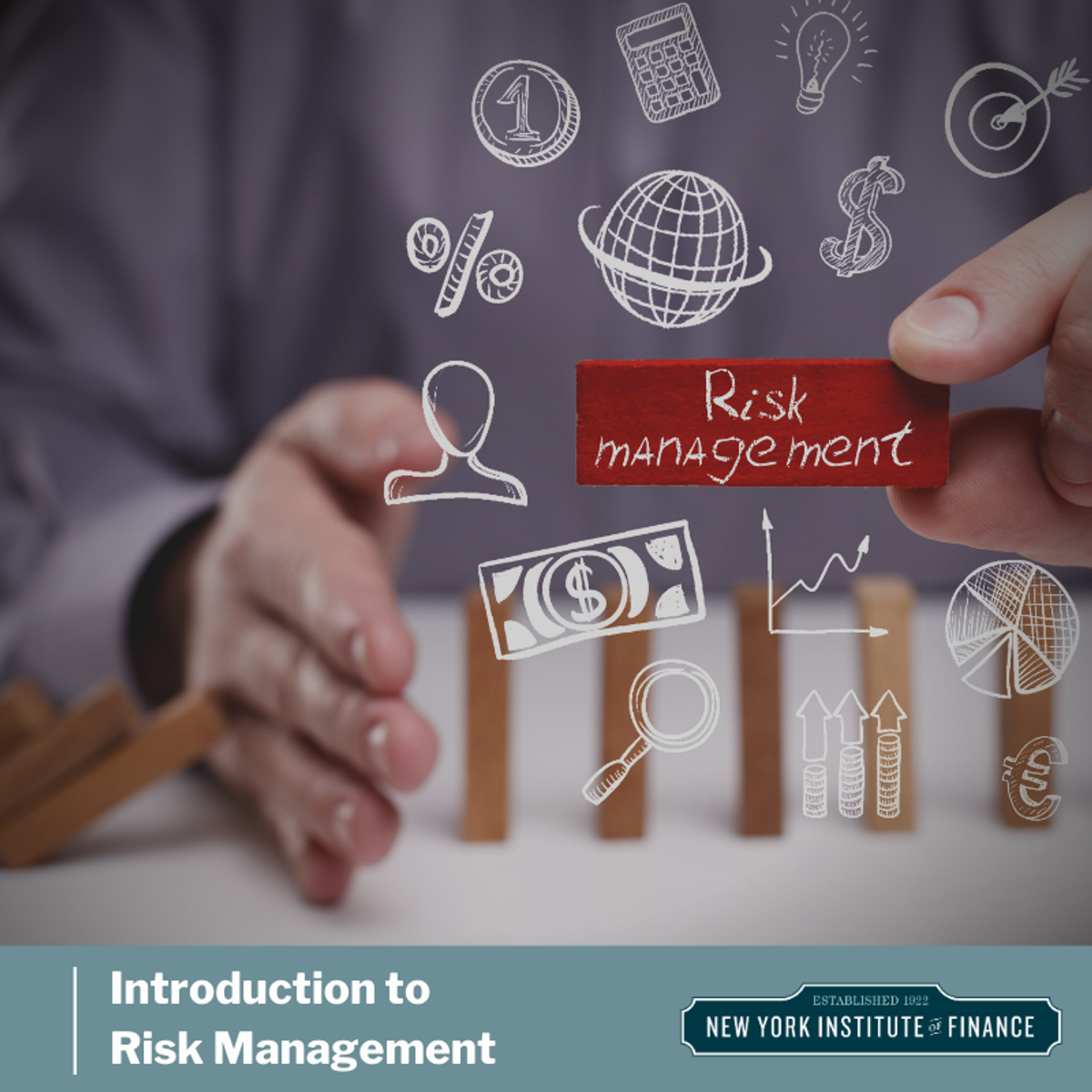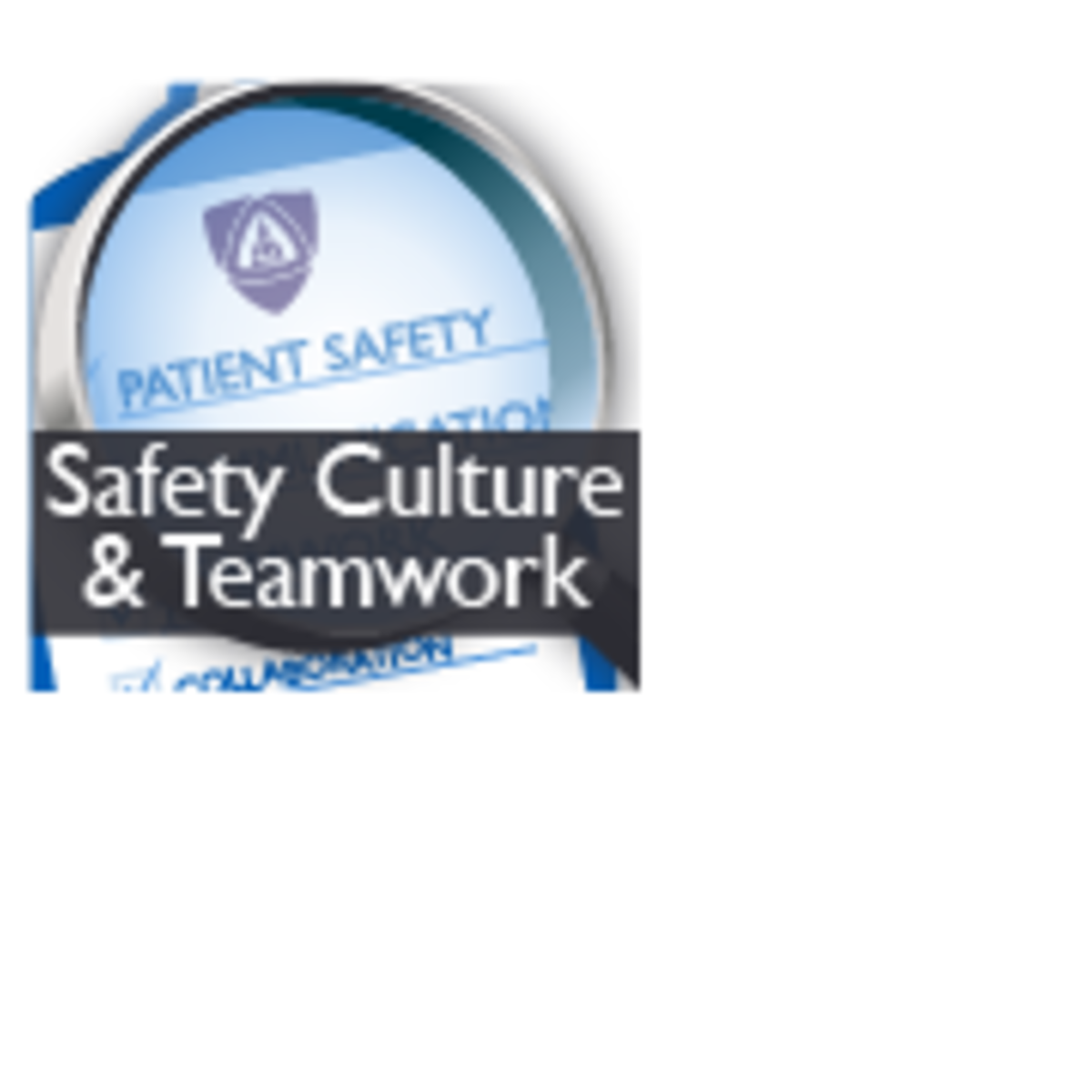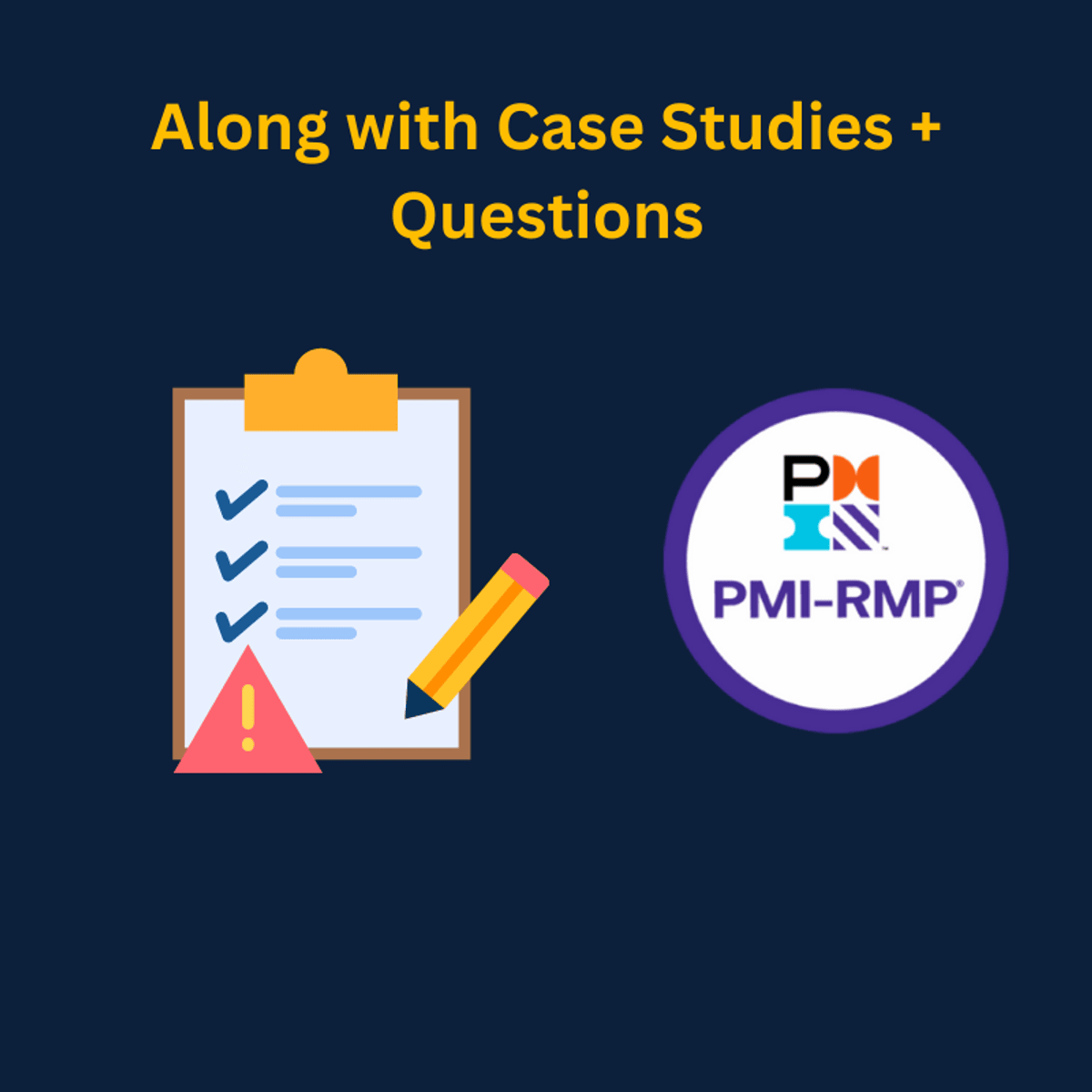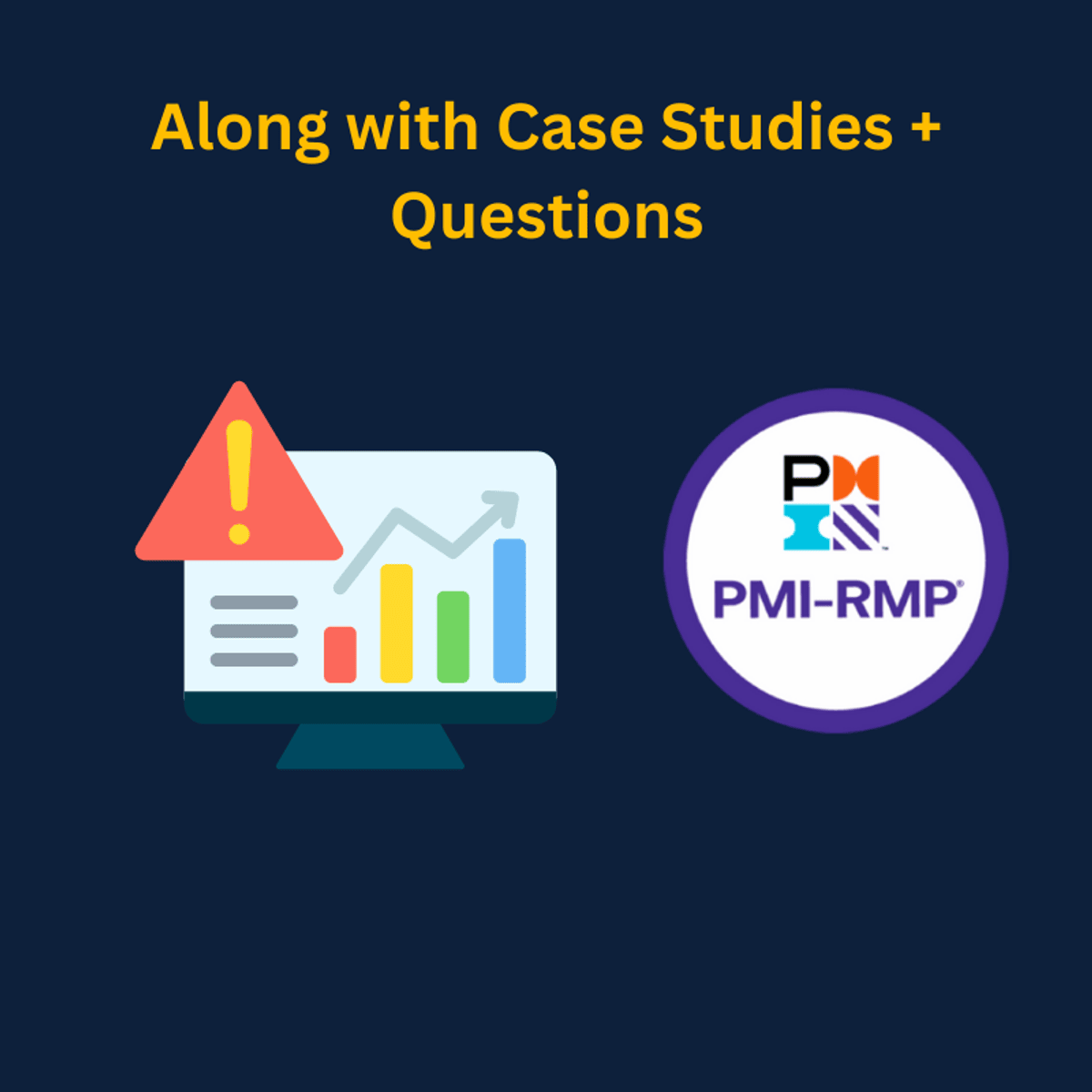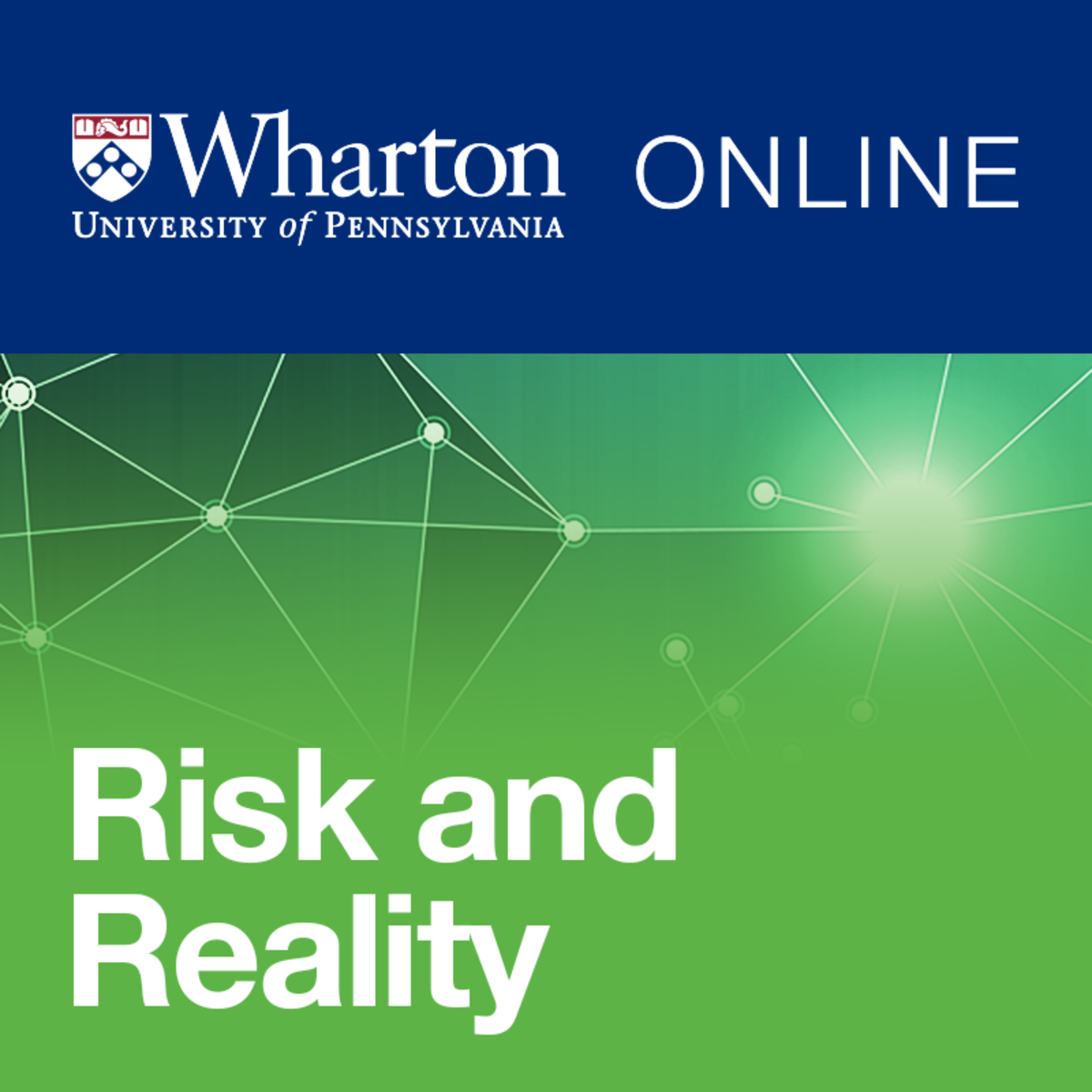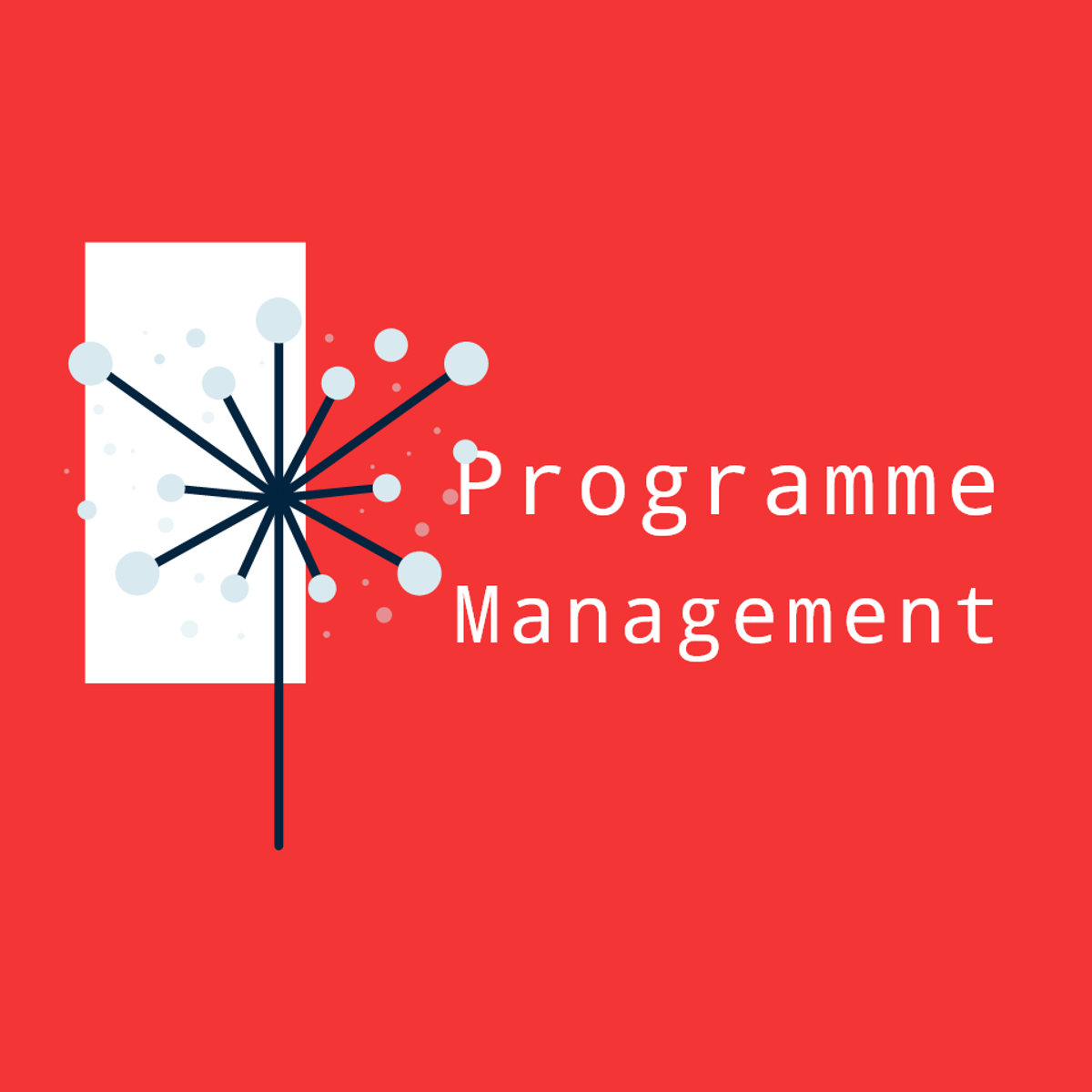Risk Manager
Navigating Uncertainty: A Comprehensive Guide to a Career as a Risk Manager
Every organization, from the smallest startup to the largest multinational corporation, faces uncertainty. A Risk Manager stands at the forefront of identifying, assessing, and mitigating these uncertainties, safeguarding the organization's assets, reputation, and future. They are the strategists who help businesses navigate complex environments, turning potential threats into manageable challenges and sometimes even opportunities.
Working as a Risk Manager involves a unique blend of analytical rigor and strategic thinking. You might find yourself modeling the financial impact of market fluctuations one day and developing contingency plans for supply chain disruptions the next. It's a dynamic field that demands sharp analytical skills, sound judgment under pressure, and the ability to communicate complex ideas clearly across different departments and levels of leadership.
Introduction to Risk Management
What is a Risk Manager?
At its core, a Risk Manager is a professional dedicated to protecting an organization from potential harm. This harm can manifest in many forms: financial losses, operational disruptions, legal liabilities, damage to reputation, cybersecurity breaches, or even threats to employee safety. The Risk Manager's role is to anticipate these potential problems before they occur.
They use a variety of tools and techniques, rooted in finance, statistics, and industry-specific knowledge, to understand the landscape of potential threats. Their goal isn't necessarily to eliminate all risk – often, taking calculated risks is essential for growth – but to ensure the organization understands the risks it's taking and has plans in place to manage them effectively.
Think of a Risk Manager as the organization's navigator through uncertain waters. They chart the course, identify potential storms or hidden reefs (risks), and advise the captain (leadership) on the best way to proceed safely while still reaching the desired destination (business objectives).
Core Objectives of the Role
The primary objective of a Risk Manager is to implement a comprehensive risk management framework. This involves several key activities. First is risk identification – systematically finding potential threats across all areas of the organization, from financial markets to internal operations to external events.
Once identified, risks must be assessed. This involves estimating the likelihood of each risk occurring and the potential impact if it does. This assessment helps prioritize which risks require the most attention and resources. Some risks might be minor inconveniences, while others could be catastrophic.
Based on the assessment, the Risk Manager develops mitigation strategies. These can range from avoiding the risk altogether, reducing its likelihood or impact, transferring the risk (e.g., through insurance), or accepting the risk if the potential reward outweighs the potential cost. Monitoring risks and the effectiveness of controls over time is also a crucial, ongoing objective.
This course provides a foundational understanding of these core objectives and processes.
Industries Where Risk Managers Work
Risk Managers are essential across a wide array of industries because risk is universal. However, they are particularly prominent in sectors with high stakes, complex operations, or significant regulatory oversight. The financial services industry – including banks, insurance companies, investment firms, and asset managers – is a major employer due to the inherent financial risks involved.
Healthcare organizations employ risk managers to address patient safety, medical malpractice liability, data privacy (like HIPAA compliance), and operational risks. Energy, construction, and manufacturing companies need risk managers to handle operational hazards, supply chain vulnerabilities, environmental risks, and large-scale project risks.
Technology companies face rapidly evolving risks related to cybersecurity, data privacy, intellectual property, and market disruption. Government agencies and non-profit organizations also employ risk managers to oversee public funds, manage operational continuity, and ensure compliance. Essentially, any large or complex organization can benefit from dedicated risk management expertise.
Global Relevance in Modern Economies
In today's interconnected global economy, risk management has never been more critical. Events in one part of the world can have rapid and significant ripple effects elsewhere. Think about global pandemics disrupting supply chains, geopolitical tensions impacting energy prices, or widespread cyberattacks affecting businesses worldwide.
Increasing regulatory complexity across different jurisdictions also elevates the importance of risk management. Companies operating internationally must navigate a patchwork of rules related to finance, data privacy, environmental standards, and more. Failure to comply can result in hefty fines and reputational damage.
Furthermore, growing stakeholder expectations regarding Environmental, Social, and Governance (ESG) factors mean companies are increasingly scrutinized for their handling of risks related to climate change, social inequality, and ethical governance. Effective risk management helps organizations build resilience, maintain trust, and ensure long-term sustainability in this complex global landscape.
Historical Evolution of Risk Management
Early Risk Management Practices
While the formal discipline of risk management is relatively modern, the fundamental concepts are ancient. Early forms of risk mitigation can be traced back thousands of years. Merchants undertaking long sea voyages pooled resources or purchased forms of insurance to protect against the loss of ships and cargo – a precursor to modern maritime insurance.
Agricultural societies developed strategies to cope with crop failures, such as storing grain surpluses or diversifying crops. Early lending practices involved assessing the creditworthiness of borrowers, a basic form of credit risk analysis. These historical examples demonstrate a long-standing human need to anticipate potential losses and develop strategies to lessen their impact.
These early practices, however, were often informal and based on intuition or simple heuristics rather than systematic analysis. The development of probability theory and statistics provided the mathematical tools needed for more rigorous risk assessment, laying the groundwork for the modern profession.
Impact of Financial Crises
Major financial crises have consistently served as catalysts for the evolution of risk management. Events like the Great Depression, the savings and loan crisis of the 1980s, the Asian financial crisis of the late 1990s, and most significantly, the Global Financial Crisis (GFC) of 2007-2009, exposed critical weaknesses in existing risk management practices and regulatory frameworks.
The GFC, in particular, highlighted the dangers of complex financial instruments, interconnectedness within the financial system (systemic risk), inadequate capital buffers, and failures in corporate governance and risk oversight. It revealed how poor risk management within individual firms could cascade through the entire economy with devastating consequences.
In the aftermath of these crises, regulators worldwide implemented stricter rules (such as the Basel III accords and the Dodd-Frank Act in the U.S.), demanding greater transparency, higher capital requirements for banks, and more robust risk management frameworks within financial institutions. This significantly elevated the importance and visibility of the risk management function.
Shift from Reactive to Proactive Strategies
Historically, risk management often took a reactive approach. Organizations primarily focused on dealing with losses *after* they occurred, often through insurance or contingency funds. The emphasis was on recovery rather than prevention. However, the increasing complexity of business and the sheer scale of potential losses demonstrated the limitations of this approach.
Modern risk management emphasizes a proactive stance. Instead of just waiting for things to go wrong, the goal is to anticipate potential problems and implement controls *before* they materialize. This involves continuous monitoring of the internal and external environment, identifying emerging threats, and embedding risk considerations into strategic decision-making.
This shift requires a forward-looking perspective and the integration of risk management across all levels of the organization. It's no longer just about buying insurance; it's about building a resilient organization that can anticipate, withstand, and adapt to disruptions. This proactive approach is often termed Enterprise Risk Management (ERM).
Technological Advancements Driving Modern Methodologies
Technology has profoundly reshaped risk management. The advent of powerful computers and sophisticated software enabled the development of complex quantitative models for measuring and analyzing risk. Techniques like Value-at-Risk (VaR) and Monte Carlo simulations became standard tools, particularly in finance.
The explosion of data ("Big Data") and advancements in data analytics provide risk managers with unprecedented insights into potential threats and vulnerabilities. Machine learning and artificial intelligence (AI) are further revolutionizing the field, enabling automated threat detection, predictive risk modeling, and more efficient analysis of vast datasets.
Specialized Governance, Risk, and Compliance (GRC) software platforms help organizations centralize risk information, manage controls, automate reporting, and ensure regulatory compliance. These technological advancements allow for more sophisticated, data-driven, and timely risk management than ever before.
This course explores the role of empathy and data in modern risk management.
This book provides a comprehensive look at quantitative approaches.
Core Responsibilities of a Risk Manager
Risk Identification and Assessment Frameworks
A fundamental responsibility of a Risk Manager is systematically identifying potential risks. This isn't a haphazard process; it relies on structured frameworks and methodologies. Common techniques include brainstorming sessions with different departments, reviewing historical loss data, analyzing process flows, conducting scenario analysis ("what-if" exercises), and using checklists based on industry standards.
Once potential risks are identified, they need to be assessed. This typically involves evaluating two key dimensions: the likelihood (or probability) of the risk occurring and the potential impact (or severity) if it does. This assessment helps prioritize risks, often using a risk matrix or heat map to visualize which risks pose the greatest threat.
Frameworks like COSO ERM (Committee of Sponsoring Organizations of the Treadway Commission) or ISO 31000 provide standardized approaches for organizations to manage risk effectively. Risk Managers are often responsible for implementing and adapting these frameworks to their organization's specific context.
These courses delve into risk management frameworks and assessment techniques.
Quantitative vs. Qualitative Risk Analysis
Risk analysis can broadly be categorized into qualitative and quantitative approaches. Qualitative analysis involves assessing risks based on descriptive scales (e.g., High/Medium/Low likelihood and impact). It relies on expert judgment, experience, and subjective assessment. This approach is often used for initial screening or when data is limited.
Quantitative analysis, on the other hand, uses numerical data and mathematical models to assign specific values to the likelihood and impact of risks. Techniques include statistical analysis, probability distributions, financial modeling (e.g., calculating potential financial loss), and simulations like Monte Carlo methods. This provides a more precise measure of risk but requires reliable data and modeling expertise.
Risk Managers often use a combination of both approaches. Qualitative analysis might identify key areas of concern, which are then subjected to more rigorous quantitative analysis to better understand the potential financial exposure or operational impact. The choice of method depends on the nature of the risk, data availability, and the level of precision required.
These resources explore quantitative methods in risk management.
Regulatory Compliance and Reporting
Ensuring the organization adheres to relevant laws, regulations, and industry standards is a critical responsibility for many Risk Managers, particularly those in highly regulated sectors like finance and healthcare. This involves staying abreast of evolving regulatory landscapes, interpreting requirements, and implementing policies and controls to ensure compliance.
Risk Managers often work closely with legal and compliance departments. They may be responsible for developing procedures to meet specific regulatory mandates, such as those related to data privacy (e.g., GDPR), financial reporting (e.g., Sarbanes-Oxley), anti-money laundering (AML), or industry-specific safety standards.
Reporting is another key aspect. Risk Managers prepare reports for senior management, boards of directors, and sometimes regulators, outlining the organization's risk profile, the status of mitigation efforts, and compliance levels. Clear and accurate reporting is essential for informed decision-making and demonstrating due diligence.
These courses cover compliance and regulatory aspects relevant to risk management.
Collaboration with Cross-Functional Teams
Risk is not confined to a single department; it permeates the entire organization. Therefore, Risk Managers must collaborate effectively with various teams, including finance, operations, legal, IT, human resources, and strategic planning units. They need to understand the specific risks faced by each department and how those risks might interact.
This collaboration involves gathering information, communicating risk insights, providing training, and working together to implement mitigation strategies. For instance, a Risk Manager might work with IT to address cybersecurity vulnerabilities, with operations to improve supply chain resilience, or with finance to manage currency exchange risks.
Strong interpersonal and communication skills are vital for building relationships across the organization and ensuring that risk management is embedded in everyday processes and decisions. Risk Managers often act as facilitators, bringing different perspectives together to develop holistic solutions.
Essential Skills and Competencies
Technical Skills
A successful Risk Manager needs a solid foundation of technical skills. Strong analytical and quantitative abilities are paramount for assessing risks, interpreting data, and building models. A good grasp of statistics and probability is often essential, particularly for roles involving quantitative analysis.
Knowledge of relevant regulatory frameworks (like Basel III for banks, HIPAA for healthcare, or NIST for cybersecurity) is crucial in many industries. Familiarity with financial principles, markets, and instruments (like derivatives or insurance) is often required, especially in finance-related roles.
Proficiency with specific software tools is increasingly important. This includes spreadsheet software like Microsoft Excel for data analysis and modeling, statistical software packages (like R or Python), and specialized GRC or risk modeling platforms. As technology evolves, skills in data analytics and understanding AI/ML applications are becoming more valuable.
These courses help build relevant technical skills.
Soft Skills
Technical expertise alone is not enough; Risk Managers also need strong soft skills. Communication is critical – the ability to explain complex risks and mitigation strategies clearly and concisely to diverse audiences, from technical teams to senior executives, is essential. This includes both written and verbal communication, as well as presentation skills.
Problem-solving and critical thinking are core to the role. Risk Managers must analyze situations, identify root causes, evaluate potential solutions, and make sound judgments, often under pressure and with incomplete information. Strategic thinking helps them see the bigger picture and align risk management with overall business objectives.
Leadership, influencing, and negotiation skills are important for driving change and gaining buy-in for risk initiatives across the organization. Adaptability and resilience are also key, as the risk landscape is constantly evolving, requiring managers to learn quickly and adjust their strategies accordingly.
Certifications (e.g., FRM, PRM)
While not always mandatory, professional certifications can significantly enhance a Risk Manager's credibility and career prospects. They demonstrate a commitment to the profession and a validated level of expertise according to industry standards. Two of the most globally recognized certifications are the Financial Risk Manager (FRM) and the Professional Risk Manager (PRM).
The FRM, offered by the Global Association of Risk Professionals (GARP), is highly regarded, particularly in the financial services industry. It focuses on market, credit, operational, and investment risk management. Passing two rigorous exams and having relevant work experience are required.
The PRM, offered by the Professional Risk Managers' International Association (PRMIA), also holds global recognition and covers financial theory, risk management practices, and market instruments. Other relevant certifications include the Certified in Risk and Information Systems Control (CRISC) from ISACA for IT risk professionals, and the Certification in Risk Management Assurance (CRMA) from the Institute of Internal Auditors (IIA) for those focused on risk assurance.
For more information, you can visit the websites of the certifying bodies:
record:15
record:29
record:17
Adaptability to Industry-Specific Risks
While core risk management principles are universal, their application varies significantly across industries. A Risk Manager in banking might focus heavily on credit risk, market volatility, and regulatory capital requirements (like Basel III). In contrast, a Risk Manager in healthcare needs deep knowledge of patient safety protocols, medical liability, and health data privacy regulations (like HIPAA).
A Risk Manager in the tech sector must grapple with cybersecurity threats, intellectual property protection, and the risks associated with rapid innovation and disruption. Similarly, managing risk in construction involves understanding safety hazards, contract risks, and supply chain vulnerabilities specific to that industry.
Successful Risk Managers develop expertise relevant to their specific industry. This requires continuous learning, staying updated on industry trends and regulations, and understanding the unique operational and strategic challenges their organization faces. Adaptability and a willingness to specialize are key differentiators.
Formal Education Pathways
Relevant Undergraduate Degrees
A bachelor's degree is typically the minimum educational requirement for entering the risk management field. Common and relevant fields of study include finance, economics, business administration, accounting, and mathematics or statistics. These programs provide foundational knowledge in quantitative analysis, financial principles, and business operations.
A finance or economics degree offers a strong understanding of markets, valuation, and financial instruments crucial for financial risk roles. An accounting background provides insights into financial reporting and internal controls. Business administration degrees offer a broader view of organizational functions, which is valuable for understanding operational risks.
Degrees in mathematics or statistics are particularly beneficial for roles requiring advanced quantitative modeling and analysis. Some universities are now offering specialized undergraduate programs or concentrations specifically in risk management and insurance, providing targeted preparation for the field.
These courses cover foundational topics often found in relevant undergraduate programs.
Graduate Programs Specializing in Risk Management
While a bachelor's degree can open doors to entry-level positions like Risk Analyst, many employers, especially for management roles or highly specialized positions, prefer candidates with a master's degree. A Master of Business Administration (MBA) with a concentration in finance or risk management is a popular choice.
Specialized master's degrees in Finance (MSF), Financial Engineering, Quantitative Finance, or specifically in Risk Management are also highly valued. These programs offer advanced coursework in risk modeling, derivative pricing, financial regulations, statistical methods, and portfolio management.
Choosing a graduate program often depends on career goals. An MBA might be suitable for those aiming for broader management roles, while a specialized master's is ideal for those seeking deep technical expertise in quantitative risk analysis or financial engineering. Some programs also offer tracks focused on specific areas like operational risk or enterprise risk management.
These courses touch upon topics covered in advanced finance and quantitative programs.
Research Opportunities in Emerging Risk Domains
For those inclined towards academic research or cutting-edge roles, opportunities exist within emerging risk domains. Climate risk is a rapidly growing area, focusing on modeling the financial and operational impacts of climate change and developing mitigation and adaptation strategies. Universities and research institutions are actively studying this complex issue.
Cybersecurity risk remains a critical research area, constantly evolving with new threats and defense mechanisms. Research into the ethical implications of AI in risk management, including algorithmic bias and automated decision-making, is also gaining traction. Geopolitical risk analysis and modeling supply chain vulnerabilities in a globalized world are other active research fields.
Pursuing PhDs or engaging in post-doctoral research in finance, economics, statistics, or related fields can lead to opportunities in academia, specialized consulting firms, think tanks, or advanced quantitative roles within large financial institutions or regulatory bodies.
Case Studies and Practical Coursework
Effective risk management education goes beyond theoretical knowledge; it emphasizes practical application. University programs often incorporate case studies based on real-world events, such as major corporate failures or financial crises. Analyzing these cases helps students understand how risk management principles apply (or fail to apply) in practice.
Coursework frequently includes hands-on projects involving data analysis, risk modeling using software tools, and developing risk mitigation plans for hypothetical scenarios. Internships provide invaluable practical experience, allowing students to apply their learning in a professional setting and gain exposure to industry practices.
Simulations, group projects, and presentations further develop essential skills like decision-making under uncertainty, teamwork, and communication. The goal is to produce graduates who not only understand the theory but can also effectively implement risk management strategies in a business context.
Online and Self-Directed Learning
Feasibility of Transitioning via Online Education
Can you pivot into a risk management career primarily through online learning? For many, the answer is increasingly yes, especially when combined with relevant prior experience or a foundational degree. The abundance of high-quality online courses, certificate programs, and digital resources makes acquiring the necessary knowledge more accessible than ever.
Transitioning this way requires discipline, structure, and a proactive approach. You'll need to identify the core knowledge areas (finance, statistics, specific risk types) and find reputable courses covering them. Building practical skills through projects and potentially seeking certifications like the FRM or PRM can further bolster your profile.
While a formal degree might still be preferred by some traditional employers, a strong portfolio of completed online courses, relevant projects, and potentially a certification can demonstrate initiative and competence, opening doors particularly in less traditional firms or roles where specific skills are highly valued. It's a viable path, but one that demands commitment and strategic planning.
OpenCourser makes it easy to find relevant courses in finance and risk management. You can use features like "Save to List" to curate your learning path and compare course syllabi.
Key Topics for Self-Study
If pursuing a self-directed path, focus on core areas. Start with foundational finance concepts: time value of money, basic accounting principles, asset valuation, and understanding financial markets and instruments (stocks, bonds, derivatives).
Probability and statistics are crucial; focus on distributions, hypothesis testing, regression analysis, and ideally, time-series analysis. Learn the fundamentals of different risk types: market risk, credit risk, operational risk, liquidity risk, and increasingly, cybersecurity and ESG risks.
Familiarize yourself with key risk management frameworks like COSO and ISO 31000, and understand core concepts like risk appetite, risk assessment matrices, and VaR. Practical skills in data analysis using tools like Excel, and potentially R or Python for more quantitative roles, are highly valuable. Learning about specific regulations relevant to your target industry is also important.
These online courses cover many essential topics for self-study.
Portfolio-Building through Independent Projects
Theoretical knowledge gained from online courses is essential, but demonstrating practical application is key, especially for career changers. Independent projects allow you to showcase your skills to potential employers. Build a portfolio that highlights your ability to apply risk management concepts.
Consider projects like: analyzing historical stock market data to calculate VaR for a portfolio; building a simple credit scoring model using publicly available data; conducting a qualitative risk assessment for a hypothetical small business based on a case study; or developing a basic business continuity plan outline.
Document your projects clearly, explaining your methodology, the tools used (e.g., Excel, Python), and the insights gained. Platforms like GitHub can be used to host code and analyses. Even small, well-executed projects can effectively demonstrate your understanding and practical abilities beyond just course certificates.
Guided projects offer structured ways to build portfolio pieces.
Balancing Formal Education with Self-Taught Skills
The ideal preparation often involves a blend of formal education and self-taught skills. A relevant degree provides structured learning, credibility, and often, access to networking and internship opportunities. However, the pace of change, particularly regarding technology and specific regulations, means continuous learning is essential.
Online courses and self-study are excellent for supplementing formal education, diving deeper into specialized topics (like a specific GRC software or a new type of financial derivative), or acquiring practical skills (like programming languages) not covered in depth in a traditional curriculum. They allow for flexibility and customization of your learning path.
For career changers, self-taught skills acquired online, demonstrated through projects and possibly certifications, can bridge the gap left by a non-traditional academic background. Ultimately, employers look for a combination of foundational knowledge, practical skills, and a demonstrated ability to learn and adapt – a mix achievable through various educational pathways.
OpenCourser's Learner's Guide offers valuable tips on structuring your self-learning journey and making the most of online courses.
Career Progression and Opportunities
Entry-Level Roles (e.g., Risk Analyst)
Most careers in risk management begin with an analyst role. A Risk Analyst typically works under the guidance of more senior managers, focusing on specific tasks like gathering and analyzing data, preparing reports, monitoring risk exposures, and assisting in the implementation of risk controls.
Entry-level roles often specialize in a particular type of risk, such as Credit Risk Analyst, Market Risk Analyst, Operational Risk Analyst, or IT Risk Analyst. These positions provide foundational experience in applying risk management methodologies, using relevant tools and software, and understanding the specific risks within a particular industry or function.
A bachelor's degree in a relevant field (finance, economics, math, business) is usually required. Strong analytical skills, attention to detail, and proficiency in tools like Excel are essential. Internships during university can significantly improve job prospects for these entry-level positions.
Mid-Career Advancement to Senior Risk Manager
After gaining several years of experience as an analyst, professionals can advance to roles like Senior Risk Analyst or Risk Manager. At this stage, responsibilities typically expand to include overseeing specific risk areas, developing risk mitigation strategies, managing small teams, and presenting findings to management.
Senior Risk Managers often take on more complex analyses, contribute to the development of risk policies and frameworks, and interact more directly with business units to embed risk management practices. They need a deeper understanding of the business and stronger strategic thinking skills.
Obtaining professional certifications like the FRM or PRM often facilitates advancement to these mid-career roles. Strong performance, demonstrated expertise in a specific risk domain, and developing leadership potential are key factors for promotion.
This book provides insights relevant to managing risk effectively in projects, a common mid-career focus.
Leadership Pathways (e.g., Chief Risk Officer)
With significant experience and demonstrated leadership capabilities, Risk Managers can progress to senior leadership positions. Roles like Director of Risk Management, Head of Enterprise Risk Management, or ultimately, Chief Risk Officer (CRO) represent the top tiers of the profession.
The CRO is typically a C-suite executive responsible for overseeing the entire risk management function across the organization. They set the overall risk strategy, advise the board of directors on risk matters, establish the organization's risk appetite, and ensure a robust risk culture is maintained.
Reaching these levels requires a blend of deep technical expertise, extensive industry knowledge, strong strategic vision, excellent communication and influencing skills, and proven leadership abilities. An advanced degree (like an MBA or specialized Master's) and relevant certifications are often expected.
This book explores strategic leadership in related project management contexts.
Industry-Specific Trajectories
Career paths can also vary significantly depending on the industry. In banking and finance, progression often involves deeper specialization in areas like credit modeling, market risk trading strategies, or regulatory capital management. Advancement might lead to senior roles within specific trading desks or risk oversight functions.
In insurance, risk managers might specialize in underwriting, actuarial analysis (though distinct from actuaries), or claims management risk. In non-financial corporations, the focus might be more on operational risk, supply chain resilience, cybersecurity, or enterprise risk management (ERM) integrating various risk types.
Moving between industries is possible, especially at earlier career stages, but specialization often deepens over time. Understanding the specific risks, regulations, and business dynamics of a particular sector becomes increasingly important for senior roles within that industry.
These resources touch upon risks in different sectors.
Risk Manager in the Age of AI and Automation
AI-Driven Risk Prediction Tools
Artificial Intelligence (AI) and Machine Learning (ML) are transforming risk management by enabling more powerful predictive tools. AI algorithms can analyze vast amounts of structured and unstructured data (like news articles, social media feeds, or internal reports) far faster and often more accurately than humans, identifying subtle patterns and emerging risks that might otherwise be missed.
These tools are being used for enhanced credit scoring, fraud detection, market volatility prediction, supply chain disruption forecasting, and cybersecurity threat identification. AI can improve the accuracy of risk models, automate routine data analysis tasks, and provide real-time monitoring capabilities, allowing for quicker responses to emerging threats.
Risk Managers increasingly need to understand how these tools work, their capabilities, and their limitations to leverage them effectively. While AI provides powerful analytical capabilities, human oversight and interpretation remain crucial.
These courses explore AI and ML applications in relevant contexts.
Ethical Implications of Automated Decision-Making
The use of AI in risk management raises significant ethical questions. One major concern is algorithmic bias. If the historical data used to train AI models reflects existing societal biases (e.g., in lending or hiring), the AI may perpetuate or even amplify those biases, leading to unfair or discriminatory outcomes.
Transparency and explainability are also challenges. Complex "black box" AI models can make it difficult to understand *why* a particular decision was made (e.g., why a loan application was denied), hindering accountability and the ability to appeal decisions. Data privacy is another concern, as AI systems often require access to vast amounts of sensitive information.
Risk Managers must be involved in developing governance frameworks for AI use, ensuring fairness, transparency, accountability, and compliance with privacy regulations. Ethical considerations must be integrated into the design, deployment, and monitoring of AI-driven risk management tools.
Reskilling Needs Due to Technological Disruption
AI and automation are changing the skill set required for Risk Managers. While AI can handle many routine data processing and analysis tasks, human skills become even more critical. Risk professionals need to focus on strategic thinking, interpreting AI-generated insights, understanding model limitations, and managing the ethical implications.
Communication skills are vital for explaining complex, AI-driven findings to non-technical stakeholders. Judgment and decision-making capabilities remain paramount, especially in ambiguous situations or when dealing with novel risks not captured by historical data. Understanding the basics of AI/ML, data science, and cybersecurity is becoming increasingly necessary.
Continuous learning and reskilling are essential to stay relevant. Risk Managers need to embrace technology not as a replacement, but as a tool to augment their capabilities, allowing them to focus on higher-level strategic analysis, oversight, and ethical governance. As noted by some analyses, AI is expected to be a complementary tool rather than a substitute in the complex field of risk management.
record:13
record:19
record:31
Case Studies of AI Integration in Risk Departments
Financial institutions are leading the way in integrating AI into risk management. Banks use AI for sophisticated credit risk modeling, detecting fraudulent transactions in real-time, and automating compliance checks for anti-money laundering (AML) regulations. Insurance companies use AI for claims processing automation, fraud detection, and personalized risk underwriting.
Investment firms leverage AI for algorithmic trading strategies, portfolio optimization, and analyzing market sentiment from news and social media data. Beyond finance, companies use AI for predictive maintenance in manufacturing (reducing operational risk), optimizing logistics (mitigating supply chain risk), and enhancing cybersecurity threat detection.
These case studies demonstrate AI's potential to improve efficiency, enhance accuracy, and provide deeper insights. However, successful implementation requires careful planning, robust data governance, addressing ethical concerns, and integrating AI tools within a strong human-led risk management framework.
record:21
record:25
record:30
Ethical Dilemmas in Risk Management
Balancing Corporate Profit vs. Societal Risk
Risk Managers often face the challenge of balancing the organization's pursuit of profit with its broader societal responsibilities. Decisions that might maximize short-term financial gain could potentially impose significant risks on the environment, communities, or consumers (e.g., cutting corners on safety, polluting, or marketing harmful products).
Conversely, implementing stringent environmental or safety measures might increase costs and reduce competitiveness. Risk Managers must navigate this tension, providing analysis that considers both financial implications and potential harm to stakeholders or the public.
This requires a strong ethical compass and the ability to articulate the long-term value of responsible behavior, which can include enhanced reputation, improved employee morale, and avoidance of costly fines or lawsuits. The rise of ESG investing puts further pressure on companies to consider these broader societal risks.
Whistleblowing and Regulatory Non-Compliance
What happens when a Risk Manager identifies significant non-compliance with regulations or unethical practices within their own organization? They may face an ethical dilemma: report the issue internally, potentially risking their job or facing retaliation, or remain silent, potentially allowing harm to occur and violating professional ethics.
In some cases, internal reporting channels may be ineffective or compromised. This can lead to the difficult decision of whether to become a whistleblower, reporting the misconduct to external regulators or the media. Whistleblowing can expose wrongdoing but often comes at a high personal and professional cost.
Risk Managers need a clear understanding of their ethical obligations, relevant laws protecting whistleblowers, and internal reporting procedures. Organizations with a strong ethical culture and robust internal controls can help mitigate these dilemmas by encouraging open communication and addressing concerns effectively.
Bias in Risk Assessment Algorithms
As discussed earlier, AI and algorithms used in risk assessment (e.g., for credit scoring, insurance underwriting, or hiring) can inadvertently contain biases. These biases can lead to discriminatory outcomes, unfairly disadvantaging certain groups based on factors like race, gender, age, or location, even if those factors are not explicitly used in the model.
Identifying and mitigating algorithmic bias is a significant ethical challenge. It requires careful examination of training data, model design, and outcomes. Risk Managers, working with data scientists and ethicists, play a role in ensuring that the algorithms used by their organization are fair, transparent, and non-discriminatory.
This involves implementing processes for bias detection, validation, and ongoing monitoring. It also requires advocating for ethical principles in the development and deployment of AI systems, ensuring that efficiency gains do not come at the cost of fairness and equity.
Environmental, Social, and Governance (ESG) Considerations
ESG factors represent a major area of focus and potential ethical dilemmas for Risk Managers. Environmental risks include climate change impacts, pollution liabilities, and resource depletion. Social risks encompass labor practices, human rights in the supply chain, data privacy, and community relations. Governance relates to board oversight, executive compensation, shareholder rights, and business ethics.
Integrating ESG into the risk management framework requires assessing these non-traditional risks alongside financial and operational ones. Dilemmas can arise when ESG considerations conflict with short-term financial targets or when there is pressure to "greenwash" or overstate ESG performance.
Risk Managers contribute by ensuring that ESG risks are properly identified, measured, managed, and reported transparently. This involves understanding complex ESG issues, engaging with stakeholders, and helping the organization navigate the evolving landscape of ESG regulations and investor expectations. Recent trends show ESG considerations being increasingly framed under the broader umbrella of risk management to mitigate potential political controversy while maintaining focus on these crucial areas.
Explore more about Sustainability and related topics on OpenCourser.
record:9
record:11
record:20
record:24
Frequently Asked Questions
Is a finance degree mandatory to become a Risk Manager?
No, a finance degree is not strictly mandatory, but it is highly relevant and common. Degrees in economics, accounting, business administration, mathematics, or statistics are also excellent foundations. Some risk managers, particularly in specialized fields like IT or engineering risk, may have degrees directly related to that specific domain.
What matters most is a combination of strong analytical skills, quantitative aptitude, business acumen, and an understanding of risk principles. While a finance degree provides a direct pathway, individuals from other quantitative or business backgrounds can certainly transition into risk management, often supplementing their degree with targeted coursework, self-study, or certifications.
Ultimately, specific requirements vary by employer and the nature of the role. However, at least a bachelor's degree is typically expected, and an advanced degree (MBA, MSF, etc.) is often preferred for management positions.
How does this role differ from actuarial science?
While both Risk Managers and Actuaries deal with risk and uncertainty, particularly in insurance and finance, their focus and methodologies differ. Actuaries specialize in using complex statistical and mathematical models to assess the likelihood and financial consequences of future events, primarily for pricing insurance policies and managing pension plans. Their work is highly quantitative and heavily regulated.
Risk Management is generally broader in scope. While it incorporates quantitative analysis (sometimes performed by actuaries or quants within a risk team), it also encompasses qualitative assessments, operational risks, strategic risks, compliance, and the development of overall risk frameworks and mitigation strategies across an entire organization. Risk Managers often focus on identifying a wider range of potential threats and implementing controls, not just pricing specific financial risks.
There can be overlap, especially in insurance companies, but actuaries typically have a deeper focus on mathematical modeling for specific financial products, while risk managers take a more holistic view of organizational risks.
What industries hire the most Risk Managers?
The financial services sector is traditionally the largest employer of Risk Managers. This includes commercial banks, investment banks, insurance companies, asset management firms, hedge funds, and brokerage houses. The inherent nature of finance involves managing complex market, credit, and operational risks, alongside stringent regulatory requirements.
Beyond finance, significant demand exists in healthcare (managing patient safety, compliance, and liability), energy (operational hazards, commodity price volatility), construction (project risks, safety), and technology (cybersecurity, data privacy, operational resilience).
Large corporations in virtually any sector (manufacturing, retail, transportation) also employ risk managers, often within an Enterprise Risk Management (ERM) framework, to address strategic, operational, and compliance risks. Consulting firms specializing in risk advisory services are another major source of employment.
Can one transition from compliance to risk management?
Yes, transitioning from a compliance role to risk management is a common and logical career path. There is significant overlap between the two fields, as both involve understanding regulations, implementing controls, and assessing potential negative outcomes for the organization.
Compliance professionals already possess valuable knowledge of regulatory landscapes and internal controls. To transition effectively, they might need to broaden their scope beyond regulatory adherence to include a wider range of operational, financial, and strategic risks. Developing stronger quantitative analysis skills and a deeper understanding of risk assessment frameworks (like COSO ERM or ISO 31000) would be beneficial.
Highlighting transferable skills like analytical thinking, attention to detail, policy development, and stakeholder communication is key. Pursuing relevant online courses or a risk management certification can further strengthen a compliance professional's candidacy for a risk role.
How stable is this career during economic downturns?
Risk management tends to be a relatively stable career, even during economic downturns. In fact, periods of economic stress often highlight the importance of effective risk management, potentially increasing demand for skilled professionals. When markets are volatile or businesses face financial pressure, the need to identify, assess, and mitigate risks becomes even more critical.
While no career is completely immune to economic cycles, risk management is often seen as a core function necessary for organizational survival and resilience. Regulatory pressures that arose from past crises also mandate robust risk functions, particularly in finance, providing a baseline level of demand.
However, like many roles, intense competition can exist for positions, especially at senior levels. Continuous skill development and adaptability remain important for long-term career stability.
What are the stress levels associated with the role?
The stress level for a Risk Manager can vary depending on the specific role, industry, organizational culture, and current market conditions. It can certainly be a high-pressure job at times. Risk Managers often deal with complex problems, tight deadlines, and the potential for significant financial or operational consequences if risks are managed poorly.
Presenting difficult news to senior management or navigating conflicting priorities between departments can be stressful. During crises or periods of high market volatility, the workload and pressure can increase significantly. The need to constantly stay updated on evolving threats and regulations also adds to the demands.
However, the role can also be intellectually stimulating and rewarding. Those who thrive on analytical challenges, strategic thinking, and problem-solving, and who possess good stress management techniques, often find the career fulfilling despite the potential pressures.
Job Outlook and Salary Expectations
Job Growth Projections
The job outlook for Risk Managers appears positive. While the U.S. Bureau of Labor Statistics (BLS) doesn't have a separate category for "Risk Manager," it often includes them within the "Financial Managers" category. For Financial Managers, the BLS projected a strong growth rate of 16% between 2022 and 2032, much faster than the average for all occupations. Other sources suggest slightly lower but still positive growth specifically for risk specialists, perhaps around 6-8%.
This demand is driven by several factors: the increasing complexity of the global economy, heightened regulatory scrutiny (especially post-financial crisis), the growing importance of managing cybersecurity and data privacy risks, and the rising focus on ESG factors. As organizations face a wider array of potential threats, the need for professionals skilled in identifying and mitigating these risks continues to grow.
Despite positive growth projections, competition for roles, especially senior ones, can be intense. Advanced education and relevant certifications like FRM or PRM can enhance job prospects.
record:13
record:28
record:14
record:16
record:3
record:6
record:33
Salary Ranges
Salaries for Risk Managers vary significantly based on experience, education, certifications, industry, company size, and geographic location. Entry-level Risk Analyst positions might start around $57,000-$70,000 annually in the US, according to various sources like Payscale and ZipRecruiter.
With several years of experience (3-5 years), Risk Managers can expect salaries ranging roughly from $70,000 to $130,000 or more. Senior Risk Managers or Directors with substantial experience (e.g., 8+ years) can earn well into the six figures, potentially $130,000 to $160,000 or higher, particularly in high-cost-of-living areas or lucrative industries like finance.
According to Salary.com and ZipRecruiter data from early 2025, the average annual salary for a Risk Manager in the US falls somewhere between $103,000 and $130,000, with typical ranges spanning from roughly $106,000 to $145,000. The highest salaries are often found in major financial centers and for those holding senior leadership roles like Chief Risk Officer (CRO).
record:4
record:8
record:10
record:1
record:2
record:12
Related Careers and Topics
Exploring Similar Roles
If the core aspects of analyzing information, managing uncertainty, and ensuring organizational integrity appeal to you, but you want to explore related fields, several options exist. A Financial Analyst focuses more broadly on financial planning, investment analysis, and forecasting, though risk assessment is often part of their duties.
A Compliance Officer specializes specifically in ensuring the organization adheres to laws and regulations, a key component of risk management but often with a narrower focus. An Internal Auditor examines and evaluates the effectiveness of internal controls, risk management processes, and governance, often working closely with risk managers.
For those with strong quantitative skills, roles like Data Scientist or Quantitative Analyst (Quant) involve building complex models, which can be applied to risk management challenges. A career in Actuarial Science is another highly quantitative path focused on risk, particularly within the insurance industry.
Deepening Your Knowledge
To excel in risk management, continuous learning is key. Delving deeper into specific topics can enhance your expertise. Understanding various Financial Derivatives (options, futures, swaps) is crucial for managing market and credit risks in finance.
Mastering different Risk Assessment Techniques, both qualitative and quantitative, is fundamental. Exploring Governance, Risk, and Compliance (GRC) frameworks provides a structured approach to managing organizational risk holistically.
Staying updated on Cybersecurity threats and mitigation strategies is vital in the digital age. Furthermore, understanding the nuances of ESG (Environmental, Social, Governance) Risk is increasingly important for long-term organizational sustainability and reputation.
Conclusion: Is Risk Management Right for You?
A career as a Risk Manager offers a challenging, intellectually stimulating path for individuals who possess strong analytical skills, strategic thinking capabilities, and the ability to navigate complexity and uncertainty. It's a field with significant responsibility, impacting an organization's stability, profitability, and reputation. The role provides opportunities across diverse industries and offers clear progression pathways for ambitious professionals.
If you enjoy problem-solving, thrive under pressure, communicate effectively, and have an interest in finance, business operations, and anticipating future challenges, risk management could be an excellent fit. While demanding, it's a career crucial to the functioning of modern economies and offers the satisfaction of safeguarding organizations against potential harm. Whether you are starting your career journey, considering a pivot, or seeking to deepen your expertise, the dynamic field of risk management presents compelling opportunities.

